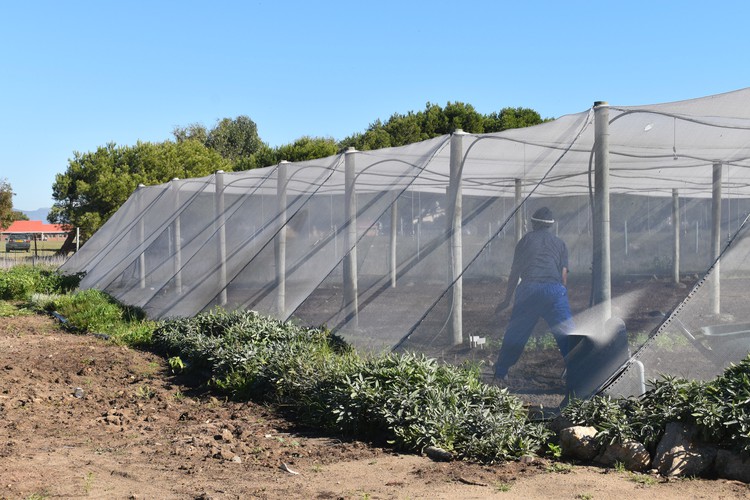Garden for psychiatric patients struggles to find funding
Lentegeur Market Garden may not make it through the year
A garden that provides rehabilitation for forensic patients in Mitchells Plain is struggling to stay open due to lack of funding. The Lentegeur Market Garden is part of the Spring Foundation, which aims to help in the recovery of patients at the Lentegeur Psychiatric Hospital.
In 2016, the foundation received an initial R745,000 from the Office of the Premier, kickstarting the market garden project.
Twenty-five patients currently work in the garden, just outside the hospital premises. They are state patients, meaning they have been found unfit to stand trial for a crime or been found not criminally responsible due to mental incapacity. They are sent to a correctional centre or mental health facility.
“Often you have a huge relapse rate,” says project director Meryl Smith. “These people go out and nothing’s changed in their environment, and so they come back again. We hope to teach them skills and give them purpose and meaning, which then encourages them to carry on and become contributing citizens.”
Among the 54 patients who have been involved in the program, 11 have been released and successfully placed in communities.
Now in its third year of operation, the garden is at risk of closing. Smith says they need to find R140,000 in the next couple of months in order to carry on for the rest of the year.
“I never thought it would come to this, to be honest,” Smith says. “We’ve always had such good support before.”
Dr. John Parker, the founder of the Spring Foundation, cites stigma against mental illness as a major barrier to getting funding.
He says organisations helping psychiatric patients “are not the sexiest place for a funder”. “The funding environment is very, very tight. I think it’s that much more difficult when you’re dealing with mental illness because of the stigma.”
Parker says the ultimate goal is for the Western Cape Department of Health to provide direct funding for the project. But each time he has discussed this with the hospital or the Mental Health Directorate of the department, he has been told there is no money, he says.
The department has supported the project by making the hospital’s resources available for use. This includes electricity, water, patients’ protective clothing, and other equipment.
Occupational therapist (OT) technician Elsa Michaels says closing the garden will be “a huge setback” for patients. “This routine is part of their identity. They became individuals. They are no longer grouped up at the ward. It will be a huge loss in terms of the way we approach people with mental illnesses and how we treat them.”
Tracy (not her real name) is one of the 25 patients currently working in the garden. Like other participants, she works three to five hours a day and gets a stipend of R5 an hour.
“I am earning some money and I can get out of the ward and experience new things,” Tracy says. “I don’t see myself as a person that will go work in a garden … but this is training for me to be patient, and to be kind to people and understanding, and to slow down myself because I’m very speedy and want stuff to be done quickly.”
Therapists and social workers have observed improvements in mood, increased social engagement, and a greater sense of purpose and financial awareness in the programme participants, according to a report compiled by Michaels.
Qualitative data, taken from occupational therapist assessments and patient feedback, is the project’s only indicator of progress, making it difficult to provide funders with evidence of impact.
“You’ve got to make sure your intervention is sustainable before you can actually gather the data to prove that it works,” Parker says. “That’s really our challenge at the moment. But ultimately, we think the garden can grow sufficiently to make profit, and that will change everything because it will enable to us to become a social enterprise, which is, ironically, also more attractive to funders.”
The farm has recently been able to double its revenue to R40,000 a month, but Smith says the farm needs to double its revenue again to become self-sustaining. The current goal is to reach R50,000 a month in sales, and make up the shortfall through outside funding.
Attempts to get comment from the Western Cape Department of Health since last week have been unsuccessful. Comments will be added if they are received.
Next: Family killed by fire in RDP house
Previous: Evicted Durban residents say City had no court order
© 2019 GroundUp.
This article is licensed under a Creative Commons Attribution-NoDerivatives 4.0 International License.
You may republish this article, so long as you credit the authors and GroundUp, and do not change the text. Please include a link back to the original article.



